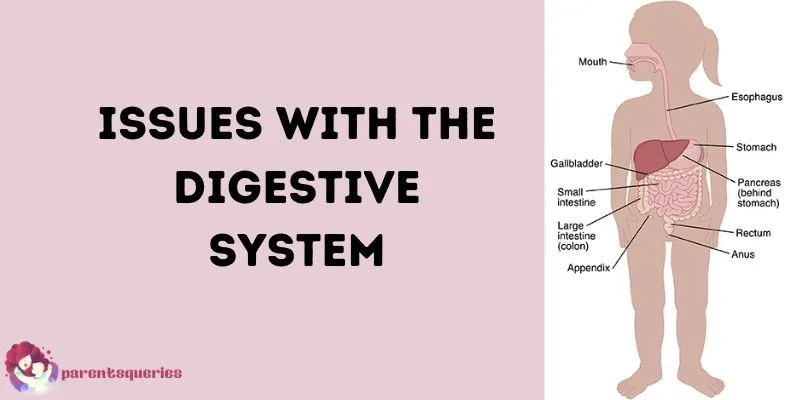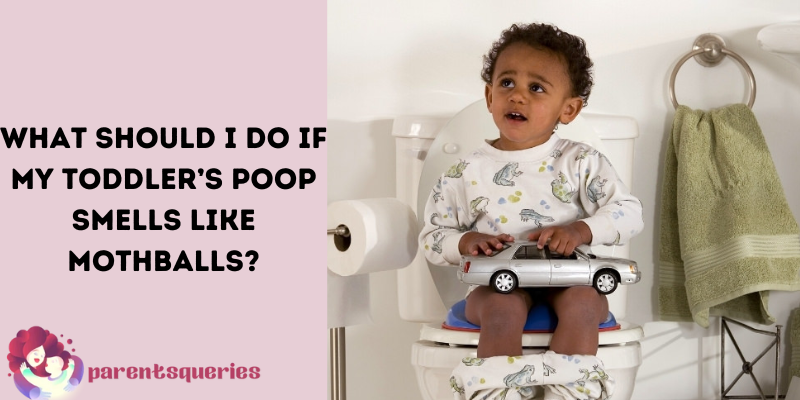My Toddler’s Poop Smells Like Mothballs: Why It Happens & What To Do
As a parent, there’s nothing quite like dread when you realize your toddler’s poop smells like mothballs. It’s enough to make you question what happened, why it’s happening, and what can be done about it.
Fortunately, this article will shed light on why your toddler’s poop may smell like mothballs and provide helpful advice on addressing the issue.
After all, understanding the cause of the problem is the first step toward finding a solution. In addition to a mothball-like smell, some babies may also produce poop that smells like vinegar.
Why Does My Toddler’s Poop Smell Like Mothballs?
One peculiar smell that may catch you off guard is the scent of mothballs. While it is not common, many parents have reported their toddlers’ feces having a similar odor. So what could be causing this unusual smell?
One possible explanation for why your toddler’s poop smells like mothballs is their diet. As your child starts to eat solid foods, their digestive system adjusts to different types of food and can produce new odors.
If your child has recently consumed foods high in sulfur compounds, such as broccoli or cauliflower, this could be the culprit behind the mothball smell.
Another reason for the strange odor could be an intestinal infection caused by bacteria or viruses. This type of infection can cause changes in bowel movements and produce foul-smelling stool with unusual odors such as mothballs.
Constipation
Constipation is a condition that can be quite uncomfortable and sometimes embarrassing. One of the most common symptoms of constipation is having difficulty passing stool, which can cause discomfort and even pain.
Another symptom that people may experience when they are constipated is a strong odor from their bowel movements that smells like mothballs.
The strong odor associated with constipation can be due to several factors, including the buildup of waste in the colon.
When stool sits in the colon for an extended period, it begins to ferment and produce gases. These gases then build up inside the colon and are released when you pass stool, causing a foul smell.
If your baby is experiencing constipation and notice that poop smells like mothballs, it’s important to take steps to relieve symptoms.
Sometimes formula milk causes constipation in babies which is not good for their health and it’s very important for parents Why Does Similac Make Babies Constipated?
Issues With The Digestive System

Issues with the digestive system can be uncomfortable and sometimes embarrassing to talk about. However, it is important to address any abnormalities in bowel movements as they may indicate something serious. One such issue is when poop smells like mothballs.
This could be a sign of a few things such as liver disease, malabsorption syndrome, or an intestinal blockage. Liver disease can cause bile to build up, leading to a mothball-like odor in stools.
Malabsorption syndrome refers to the inability of the body to properly absorb nutrients from food which can result in foul-smelling poop. An intestinal blockage occurs when there is a physical obstruction within the intestines that prevents normal digestion and excretion.
If your toddler’s poop has been smelling like mothballs or you are experiencing any other digestive issues, it is important to seek medical attention immediately. Read Child Pooping in Pants for Attention
Food Allergies
Food allergies can be a challenging condition to live with. There are various symptoms that one may experience when they have food allergies, and some of them can be quite unpleasant. One such symptom is the poop smell like mothballs.
This bizarre symptom may seem alarming and confusing, but it can occur in individuals who have allergies to certain foods. The smell is caused by digestive problems that arise due to an allergic reaction in the body.
When the body cannot process certain foods properly, it leads to the fermentation of undigested particles in the gut, resulting in foul-smelling feces.
It is important for anyone experiencing this symptom or any other related symptoms to seek medical attention immediately.
Ignoring such signs could lead to further complications such as nutrient deficiencies, inflammation of the digestive tract, and even chronic diseases related to the immune system.
Lactose Intolerance
Lactose intolerance is a common condition that affects many people worldwide. It occurs when the body is unable to digest lactose, a sugar found in milk and dairy products.
Symptoms range from mild discomfort to severe gastrointestinal distress such as bloating, gas, diarrhea, and abdominal pain.
One peculiar symptom of lactose intolerance is that it can make poop smell like mothballs. This strange odor may be caused by the undigested lactose fermenting in the gut and releasing gases that give off a pungent scent. While this symptom may seem odd, it’s quite common among people with lactose intolerance.
If you suspect you may have lactose intolerance or experience any unusual symptoms after consuming dairy products, it’s important to talk to your doctor for proper diagnosis and treatment options. Adopting a low-lactose or dairy-free diet can help alleviate symptoms and improve overall gut health.
Gluten Intolerance
Gluten intolerance is a common condition in which the body’s immune system reacts negatively to gluten, a protein found in wheat, barley, and rye.
While some people with gluten intolerance may experience digestive symptoms like bloating, gas, and diarrhea after consuming gluten-containing foods, others may have more unusual symptoms. A lesser-known symptom of gluten intolerance is having poop that smells like mothballs.
The reason for this unpleasant odor can be traced back to the gut microbiome. When people with gluten intolerance consume foods containing gluten, it can trigger an inflammatory response in the gut lining.
This inflammation can lead to changes in the balance of bacteria living in the intestines. As a result, certain types of bacteria that thrive on undigested carbohydrates produce gases like methane and hydrogen sulfide – which give off that mothball-like smell.
Clothes Exposure To Mothballs
If you’ve ever detected a peculiar mothball smell in your toddler’s feces, it could be due to the use of mothballs on clothes.
Mothballs are commonly used to keep moths away from clothes and other fabrics that may be stored for long periods.
However, these chemical balls release toxic fumes that can accumulate on clothing; when worn, they are absorbed into the body through inhalation or skin contact.
As a result, prolonged exposure to mothballs can lead to symptoms such as headache, dizziness, nausea, and vomiting.
In addition, wearing clothes that have been stored with mothballs can also cause diarrhea and constipation.
What Should I Do If My Toddler’s Poop Smells Like Mothballs?

It’s crucial to determine if your child has ingested anything that could have resulted in the odor. Did they accidentally swallow a mothball or get into any cleaning products?
If so, seek medical attention immediately as these can lead to serious health concerns. Secondly, consider their diet – certain foods such as garlic and spices can cause strong odors in stools. Ensure your child is drinking plenty of water and eating a balanced diet with fruits and vegetables.
Conclusion
It’s important to understand that there are natural causes behind why your toddler’s poop smells like mothballs.
If the smell persists, however, you should contact your pediatrician right away to rule out any underlying medical issues.
However, if no medical cause is found, then it can be helpful to increase fiber and water intake or offer probiotic supplements to reduce the smell.






